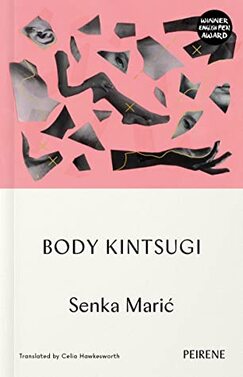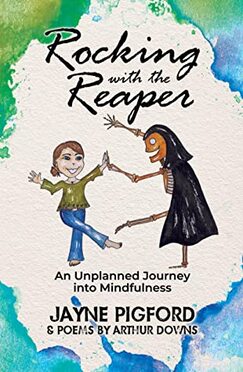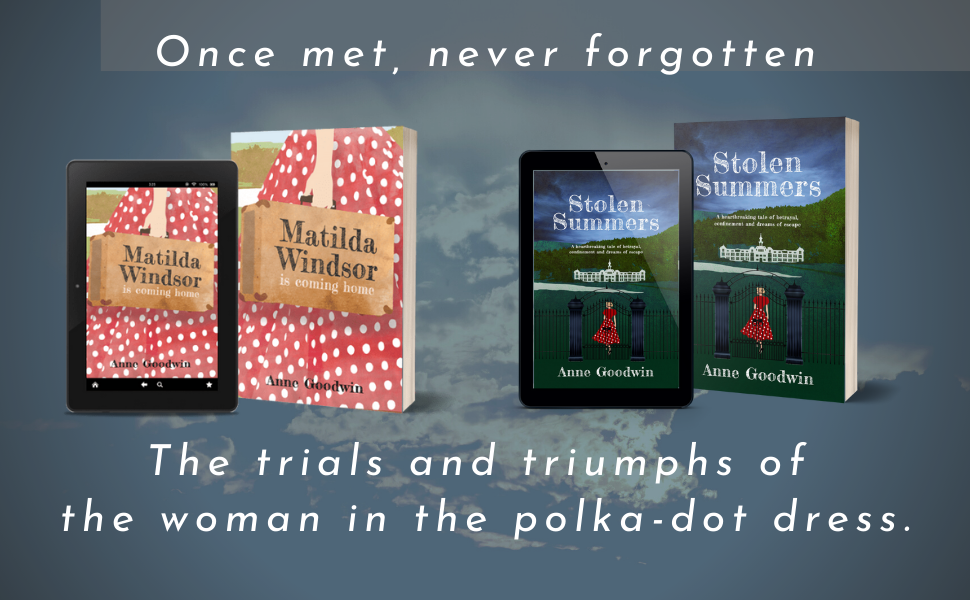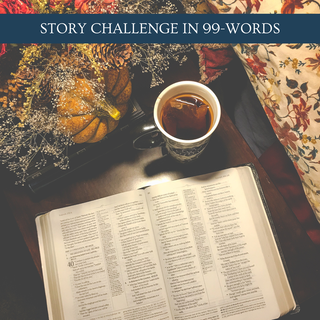Body Kintsugi by Senka Marić translated by
Celia Hawkesworth
The result is a numbing narrative, which I assume to be intentional, echoing the character’s experience, but it didn’t work for me. The author presents her as an Everywoman, but I wanted character and context: she’s a mother, a daughter, a friend and a lover, but we only get to meet her as a cancer sufferer / survivor keeping her emotions under control.
Thankfully, she gifts us glimpses of her girlhood; in these brief flashbacks, albeit fragmented, we get a sense of her personhood, although there’s a huge gap between her adolescence and her patienthood.
No doubt I expected too much of my first translation from the Bosnian. Illness is boring and alienating and the bar has been set high by the brilliant essay by the late Hilary Mantel. But the blurb promised an intimate, insightful account of the difficulties of adolescence, ongoing patriarchal attitudes in Bosnian society, motherhood etc which I don’t think the novella delivered. We do meet the girl in adolescence, but also as a very young child; her father is a drunken bully, but her grandfather is kind, so we have two conflicting models of Bosnian men; and I felt as if I was the only one worrying about the impact of her illness on her two children. But the judges of the prestigious Meša Selimović prize thought differently and named this the best novel in Bosnia and Herzegovina, Croatia, Serbia and Montenegro in 2019.
Thanks to Peirene Press for my advance review copy.
Rocking with the Reaper by Jayne Pigford
She picked herself up and got on with her life, working hard and playing hard. She was thirty-one and enjoying her career as a child protection social worker when she was hospitalised again, this time for seven gruelling months. After various traumatic treatments and near-death experiences, her diagnosis was switched to Antiphospholipid Syndrome, a serious blood-clotting disorder.
It took several more months post-discharge to feel well enough to work again; she retrained as a therapist to give her more flexibility. Although forced to make space for chronic illness, she didn’t let it rule her. She continued to travel, have a social life and fall in and out of love. Even when kidney failure meant thrice-weekly dialysis, she remained open to new experiences and concerned with creating a better world.
If you follow my reviews, you’ll know I’m not fond of memoir, but this was so much more. Jayne recounts her ups and downs with humility and honesty, and the warmth of her personality shines through. She writes as if chatting to an educated friend, someone who will welcome updates on her family, friends and love life, and especially what she’s learned through her reading and observations of that foreign country we call the NHS. The narrative is illustrated with Jayne’s cheery drawings and some poems written by her grandfather, Arthur Downs.
There was a lot that resonated for me in this book. I particularly liked how she draws on attachment theory to understand her family dynamics and her own response to stress, melding research and her personal experience to articulate this model of psychological development in a down-to-earth way. She’s also a fellow advocate for staying with ‘negative’ emotions in order to grow. Raging at injustice, and she also weaves in evidence from positive psychology and neuroscience that emphasised the human compulsion to connect. (See also my review of The Social Brain.)
Jayne’s book was recommended to me by fellow Inspired Quill author, Clare Stevens. This was after – as we shared a book stall this summer – I got very excited seeing a young woman wearing a Kidney Research T-shirt and called her over, not to chat about reading but about living with kidney disease. (I must say, there is a hell of a lot to learn.) Poor Clare had already more than enough about my condition as, thanks to outdoor events, I stepped gradually back towards my version of normality.
I missed meeting Jayne when she passed by our stall at another event, when I had gone walkabout. When Clare told her I had bought her book, she said something along the lines of I hope she doesn’t find it too gruesome. That surprised me, as I thought I was inured to medical procedures – until I got to the descriptions of dialysis.
That night I had my first anxiety dream since my own diagnosis of kidney disease four months ago, although it was less about the prospect of renal failure in the (far far distant) future, than my current fear of picking up a virus when my immune system is suppressed. Given that it transported me to the psychiatric hospital where used to work, my dream was perhaps more likely to have been triggered by launching my novella Stolen Summers, the prequel to Matilda Windsor Is Coming Home. (If that’s not enough, I was also working on the edits to the sequel, which includes a new character adjusting to another disturbing medical intervention.)
Given how much tea features in Matilda Windsor Is Coming Home, you might be surprised that, in Stolen Summers, I have allowed Matty and her friend to drink coffee. And, this being the early 1960s, they feel very sophisticated doing so. I did consider writing about that when I saw the latest flash fiction challenge, except that prompt specifies tea and its rituals.
| In the end, I’ve written two, both BOTS (based on a true story). The first is in solidarity with Jayne, although in writing it I realise I feel uncomfortable airing an illness narrative yet again, as if it’s not quite proper. But I wanted to say something about the social contract around caring and kindness: receiving can be as important as giving. Maybe the second story is about the same thing – you might notice the title is based on last week’s challenge. |
I try to be patient: the woman beyond the curtain is clearly unwell. But what about me? I’ll never recover if I don’t get my sleep.
I’m just nodding off when the alarm blares again. Heart pounding, I grab my pillow and wander the corridor, searching for peace. "The noise is finished," the nurse reassures me. "Shall I bring you a nice cup of tea?"
I nod, although I won’t drink it. Why squander a fifth of my fluid allowance on thick builder’s brew? I’m accepting the ritual, the symbol of caring: right now, that’s all she can give.
Would you drink yak butter tea for me?
In Kathmandu we learnt the Nepalese for black tea without sugar, but it didn’t work in the Himalayas. Eventually we relished sweet spiced chai at the rest stops as much as we relished shrugging off our heavy packs. The farther we trekked, the thinner the air, the friendlier the people. We grinned when Tibetan monks invited us for tea.
Yak butter tea, smelling of goat and rancid cheese, black with grease floating on top. I couldn’t drink it. I couldn’t refuse their hospitality. I couldn’t throw it away. My companion saw me gagging, swallowed his and swigged mine too.

























 RSS Feed
RSS Feed





















